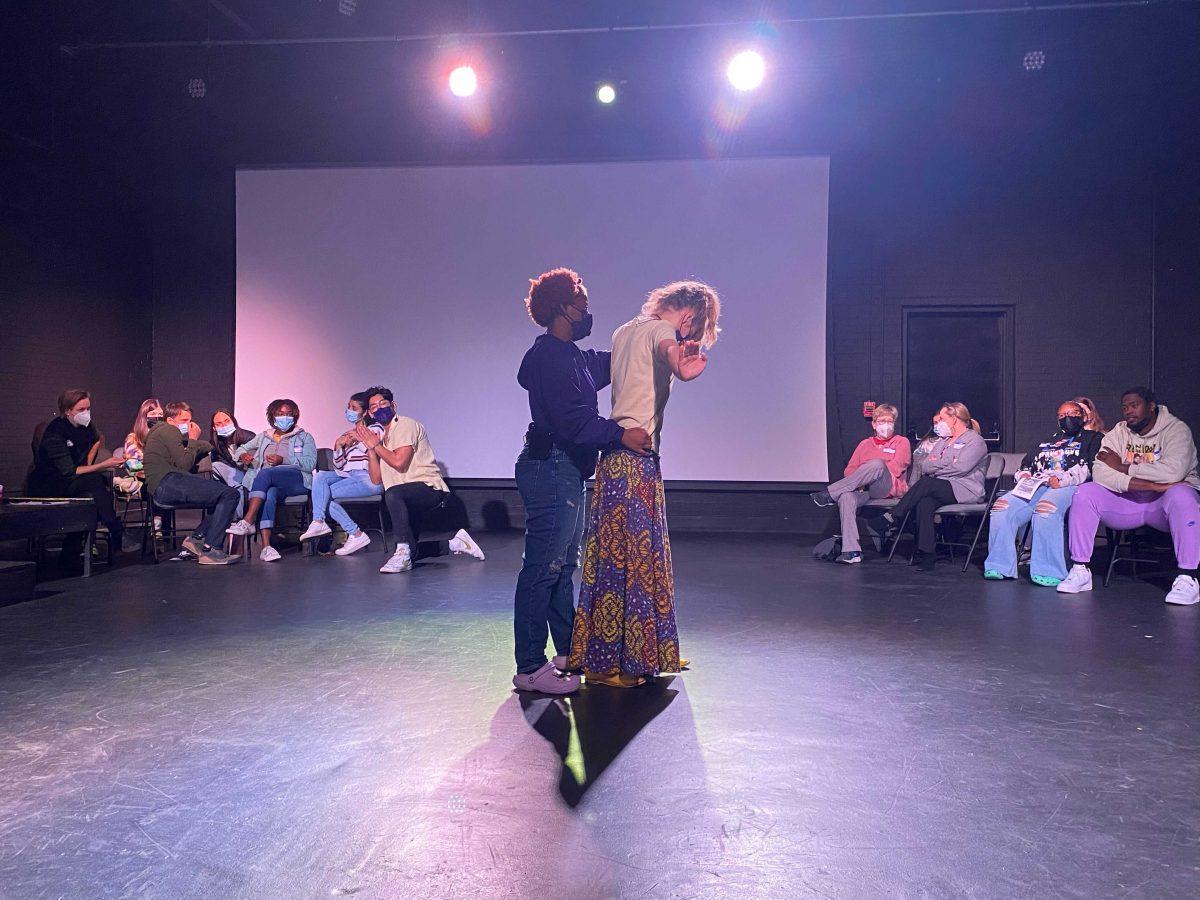Sick, disgusted, angry and exhausted. These are all emotions expressed by audience members who participated in an interactive performance art piece discussing sexual assault, “Resilient Body”, on March 13, at LSU’s Hopkins Black Box Theater.
“Performance allows for there to be nuanced dialogue,” said show director Johanna Middleton, a second-year master’s student majoring in performance studies.
“It allows folks to come to conclusions in their own right. Instead of being told something, you can determine something for yourself.”
Middleton believes that when artists use more than just their words and begin to involve their bodies in a piece, they are able to bring more power to the performance. By making “Resilient Body” an interactive experience, with audience members moving their bodies and participating in group work, participants are able to truly engage with the topic of sexual violence and assault.
“I think just making sure that we remember that there are many different ways to approach addressing this issue is so important,” said Middleton. “For some people, that’s going to be making sure that the university itself is being held accountable. For other people, that means making sure that survivors feel like they’re supported and making sure that folks know what resources are on campus. There are so many different layers. You just have to know that you can make a difference if you connect to one of those things.”
“Resilient Body” explored many different aspects of sexual assault, not only from the survivor’s perspective but from the perpetrator’s as well. Some audience members shared during the performance that feelings of guilt arose within them.
Middleton wants people who find themselves in this position of feeling that they have made mistakes or not done enough to protect others that it’s okay to start somewhere, rather than do nothing at all.
“Once you are able to address how you’re thinking, then you can be an influence in your friend groups, the clubs you’re in and in the spaces that you partake in. That’s how change starts to slowly ripple out,” she said.
Middleton chose to emphasize that sexual assault is an intersectional issue that needs to be treated as so. She feels that ignoring different experiences of sexual assault is to ignore the issue at large.
“We’re all affected by it, but we all experience it differently. Race plays a big part in how we experience sexual violence, and also in how seriously sexual violence cases are taken. Also, gender and sexuality. All of these things affect a survivor’s experience,” she said.
She hopes that by putting on interactive performances discussing sexual assault through an intersectional lens in a safe and open space, people will feel more encouraged to acknowledge survivors and their stories.
“We need to make sure that we are acknowledging that it isn’t just one single story in terms of what a survivor looks like or in terms of what someone who commits sexual violence looks like because we all are participating in that system,” Middleton said. “I think that’s how we really start to change the thinking around sexual violence.”






